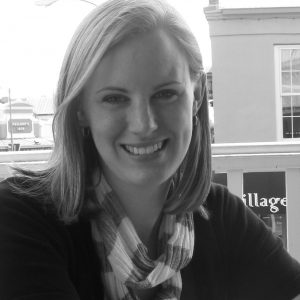 Mikaëla M. Adams, associate professor of history at the University of Mississippi, has been awarded a coveted fellowship by the American Council of Learned Societies.
Mikaëla M. Adams, associate professor of history at the University of Mississippi, has been awarded a coveted fellowship by the American Council of Learned Societies.
The yearlong fellowship allows scholars to focus solely on their research or writing. Of the nearly 1,150 scholars who applied for the 2018 fellowship, only 78 – less than 7 percent – were chosen for the award. Adams, a highly regarded historian of modern America with a focus on Native American history, joined the faculty in the Arch Dalrymple III Department of History in 2012.
Adams plans to use her fellowship, to make progress on her new book project, tentatively titled “Influenza in Indian Country: Indigenous Sickness, Suffering, and Survival during the 1918-1919 Pandemic,” which will provide an ethnohistorical account of the world’s deadliest pandemic and its long-term consequences for Native American communities across the United States.
In particular, Adams’s work will explore how the influenza virus infected indigenous people on reservations and boarding schools, how their living conditions in this period exacerbated the effects of influenza, how institutionalized segregation determined Native access to healthcare, how indigenous people responded medically, and how this health crisis affected the federal-tribal relationship. By combining the methodologies of medical history and ethnohistory, moreover, it will highlight both the biological consequences of influenza on Native American communities and the ways that social constructions of race, ethnicity, sickness, and healing shaped the experience of infection for indigenous people in this time period.
Adams is already the author of Who Belongs? Race Resources, and Tribal Citizenship in the Native South (Oxford University Press, 2016), which was explores how six southeastern Indian tribes—the Pamunkey Indian Tribe of Virginia, the Catawba Indian Nation of South Carolina, the Mississippi Band of Choctaw Indians, the Eastern Band of Cherokee Indians of North Carolina, the Seminole Tribe of Florida, and the Miccosukee Tribe of Indians of Florida—decided who belonged to their communities in the late nineteenth and twentieth centuries.

